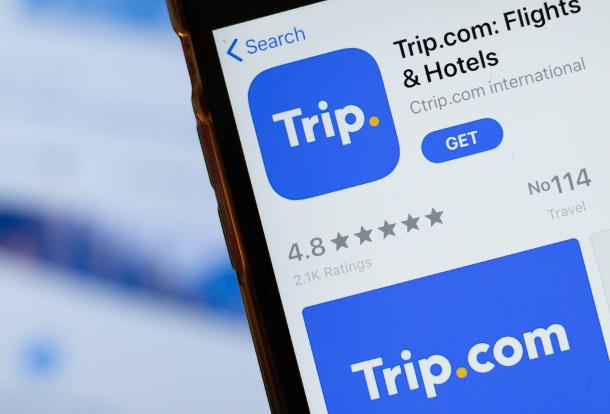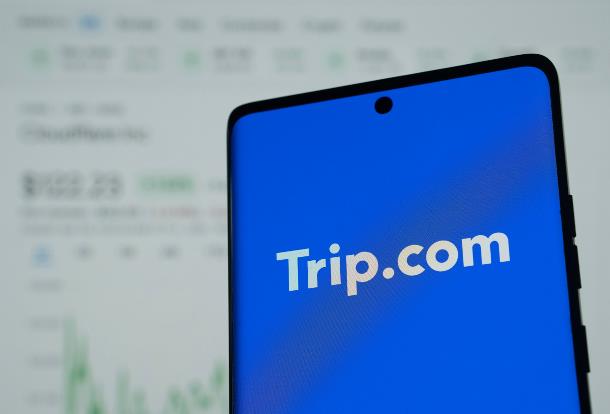
ChinaTravelNews, Ritesh Gupta – China’s online travel sector is undergoing a deep technological shift, with artificial intelligence (AI) and large language models (LLMs) fundamentally changing how major players operate and compete.
Given the massive scale of the Chinese travel market and its mobile-first, superapp consumer base, companies are relying on LLMs to fundamentally transform how their platforms serve customers. The transformation is evident as industry leaders like Trip.com Group, Tongcheng, and Meituan deeply immerse in two key areas: automating operations and enhancing the user interface. This includes leveraging data-driven insights for tasks like dynamic pricing and content generation.
Imagine initiating trip planning from any idea or inspiration. That’s what makes Trip.com’s major upgrade to its tool, Trip Planner, promising, according to the group’s Co-founder and Executive Chairman James Liang.
During Trip.com Group’s recent earnings call, Liang articulated this shift.
“We believe OTAs are uniquely positioned to lead the development of travel-focused AI,” said Liang.
He mentioned that the group is redefining travel tech by working on deeply integrated, travel-specific intelligence. He noted that with access to proprietary user insights, real-time product feeds, and verified inventories, the company could provide more accurate and trustworthy recommendations than “general-purpose AI”. He added that this AI was supported by strong service capabilities that guided travellers throughout the entire booking process.
Liang explained that to enhance the traveller’s experience, Trip.com had recently upgraded its trip planner to provide a personalised and intelligent planning experience. The process begins with users answering just three questions around destination, trip duration, and travel style, after which the AI generated a customised itinerary. He detailed how the AI seamlessly integrated real-time information, including transportation, accommodation, dining, and attraction options, with complete details on pricing and availability.
According to Liang, the planner ensured all recommendations were practical and locally relevant by drawing on millions of data points to suggest top-rated and timely experiences.
The system also proactively avoided common issues like long transfers and verified the suitability of attractions. He added that after the AI created the initial plan, users could also collaborate with a human travel consultant on the app to refine their itinerary, providing an extra layer of expertise. The entire journey could be previewed on an interactive map, allowing users to freely adjust routes and schedules, either on their own or with the AI’s help. This blend of verified insights and flexible planning made each itinerary both reliable and enjoyable to explore, according to the team.
Explaining how a rich content ecosystem strengthens the AI model, he mentioned that users can now generate content more easily, not only through text input, but even from a single image, allowing the company to provide practical and reliable suggestions based on browsing behaviour, bookings and reviews.
AI for hotel marketing
The group is rolling out specific AI-powered initiatives. CEO Jane Sun highlighted a new initiative called Intellitrip, designed to help hotels capture inbound demand and improve efficiency.
The initiative includes a multilingual AI system that provides customer service and translation in 26 languages, as well as an AI business adviser for real-time operational insights. Intellitrip also features an AI content generator that enables hotels to create and distribute video content.
The company’s goal is ambitious: to partner with 200,000 hotels over the next three years, targeting 100% growth in inbound bookings, new users, and efficiency.
As for how the company is helping hotels in generating bookings, she said, “…our Hotel Plus X products showcase each property’s unique features and can lift average revenue by more than 30%.”
Inbound travel
Both Liang and Jane, as witnessed in the past, have been talking about the potential for inbound travel in China.
The group’s inbound travel bookings in China increased by over 100% year-over-year, driven primarily by demand from Korea and Southeast Asia.
Liang said, “Today, inbound travel accounts for less than 0.5% of China’s GDP, well below the one to 2% levels typically seen in developed markets, highlighting substantial room for growth.”
“Pre-COVID, the inbound business only accounted for 0.3% for China inbound business. So there is a great potential,” said Jane.
CFO Cindy Wang added, “The APAC region remain to be our operational focus and continue to contribute the majority of our international revenue. We are also seeing encouraging momentum in the newer market such as The Middle East, even at an early stage of development. The triple digit growth in the inbound booking highlights in the vast potential of the inbound travel segment.”
Wang also underlined that this segment also creates “strong synergies as there’s significant overlap between Trip.com’s targeted APAC user bases and inbound travellers into China, many of whom also come from the APAC countries.”
“Our ongoing enhancement to the Trip.com rewards loyalty program have effectively strengthened user retention user retention and created a flywheel effect that reinforces loyalty,” said Wang.
Jane mentioned that outbound travel from China also sustained steady growth during the quarter. “In Q2, cross border flight capacity recovered to 84% of pre-pandemic levels. Our outbound hotel and air bookings have surpassed 120% of 2019 volumes, outpacing the broader market by 30 to 40 percentage points,” she said.
Trip.com Group reported net revenue of RMB14.8 billion (US$2.1 billion), representing a 16% increase from the same period in 2024 and a 7% increase from the previous quarter, primarily driven by stronger travel demand, particularly during the holiday periods.
Net income for Q2 was RMB4.9 billion (US$681 million), compared to RMB3.9 billion for the same period in 2024.




